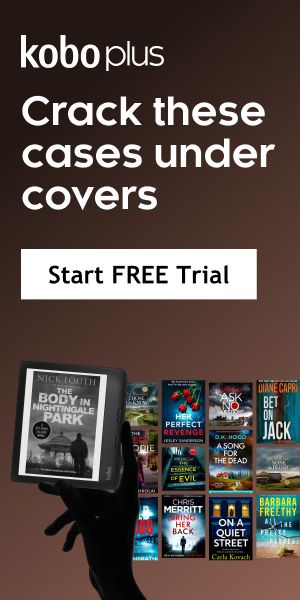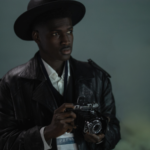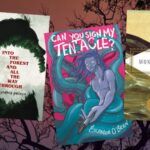
10 Books from the Summer to Make You Smarter in the School Year
The problem with school is that it can really cut into your reading time.
Gone are the glorious days of lugging hefty historical novels in your beach bag, watching the iced coffee make condensation rings all over your favorite vampire series, and listening to a hardboiled mystery on tape while cruising the city at sunset on your trusty bicycle.*
Here are the days of reading to transmit information from the outside to the inside of your brain. And that is no fun at all.
The good news is that this summer issued some very entertaining, very smart reads that make the transition from the backseat of a road trip to the corner cubicle of the library pretty seamlessly. Here, as a last hurrah to summer reading, is a list of nonfiction to help you actually enjoy getting yourself educated.
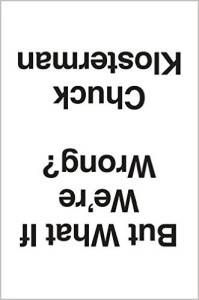 But What if We’re Wrong?, Chuck Klosterman
But What if We’re Wrong?, Chuck Klosterman
This book is a great accompaniment to pretty much any academic study of pop culture, from music to art to digital culture to literature. Klosterman imagines what the current world will look like when viewed from far away in the distant future, and seeks to understand what will be or won’t be important through a series of interviews with the present age’s great thinkers and creators.
I Contain Multitudes: The Microbes Within Us and a Grander View of Life, Ed Wong
Trying to get psyched for your lab science requirement? Try this book. Wong examines the fascinating and largely unseen world of bacteria, which includes a close look at all the bacteria you really did not want to know were in/on/around your body. From bacteria who coexist with creatures in the deepest sea to the human microbiome, it’s a captivating look at the unseen bacterial world that surrounds us.
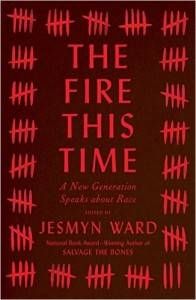 The Fire this Time: A New Generation Speaks About Race, Edited by Jesmyn Ward
The Fire this Time: A New Generation Speaks About Race, Edited by Jesmyn Ward
This stunning collection of essays (and some poetry) features many of today’s most compelling writers on race as they take James Baldwin’s 1963 work The Fire Next Time as a starting point for reflecting on what both has and has not changed since the Civil Rights era in the United States.
White Rage: The Unspoken Truth of America’s Racial Divide, Carol Anderson
Like the above title, this book would be a great way to prep for your African American history course or your political science special topics seminar. The author traces overwhelming tensions between black and white Americans from the passage of the Thirteenth Amendment in 1865 to the current climate of the Black Lives Matter movement, showing the ways in which significant progress for African Americans in the United States has systematically been met with debilitating backlash.
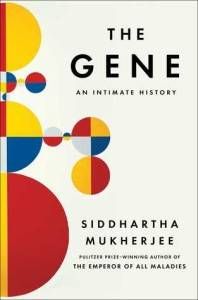 The Gene: An Intimate History, Siddhartha Mukherjee
The Gene: An Intimate History, Siddhartha Mukherjee
This compelling (and, at certain points, controversial) new work from the author of The Emperor of Maladies not only tells the story of genetics as a scientific discipline, it also intimately portrays our historic relationship to the knowledge we glean from studying the genome. How far removed are humans from other species? What are the ethics of tampering with DNA? Is human identity written in an unbreakable code? Mukherjee explores these unsettling questions while also detailing the history of mental illness in his own family.
Who Cooked Adam Smith’s Dinner?, Katrine Marçal
In a text that can be cross-listed as extracurricular reading for both your Econ 101 and your women’s studies courses, Marçal goes to the root of economics as a field, and shows how the vast contributions of women in their role as caregivers have been systematically ignored. By arguing that we must take into account the significant jobs that are often performed by women and are also often uncompensated, the author also criticizes our nearly religious zeal for the contemporary study of economics.
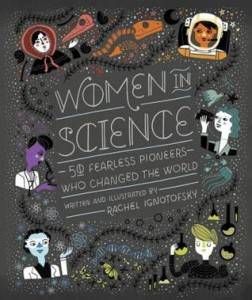 Women in Science: 50 Fearless Pioneers Who Changed the World, Rachel Ignotofsky
Women in Science: 50 Fearless Pioneers Who Changed the World, Rachel Ignotofsky
This book is a delight. It’s clever and beautifully illustrated and profiles 50 women scientists (most of whose names are probably unfamiliar) and their major contributions to their fields, going as far back as the 4th century Greek astronomer and philosopher Hypatia. Enjoy it on your own, or with your students.
White Trash: The 400-Year Untold History of Class in America, Nancy Isenberg
In this sweeping history, Isenberg chronicles America’s white working class from the 1850’s to the present day. While it has been criticized for focusing on class somewhat at the expense of race and gender considerations, this significant work also reveals how the American dream of a “classless society,” in which upward mobility is an infinitely attainable possibility, is a deeply ingrained and damaging fiction.
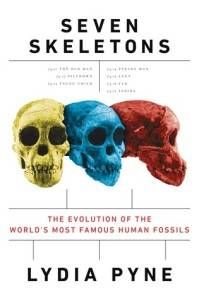 Seven Skeletons: The Evolution of the World’s Most Famous Fossils, Lydia Pyne
Seven Skeletons: The Evolution of the World’s Most Famous Fossils, Lydia Pyne
Our understanding of human evolution has come about not slowly but with sudden leaps, most famously brought about by the discovery and verification process of a new fossil, like that of the famous Taung child or of Lucy. Here, Isenberg not only writes about the significance of the fossils themselves, but also tells the equally fascinating story of how the knowledge gained by these skeletons had vast effects on both the scientific community and society at large.
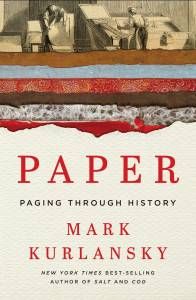 Paper: Paging Through History, Mark Kurlansky
Paper: Paging Through History, Mark Kurlansky
This is an example of my favorite type of nonfiction book: the type that tells a rich and complicated story about a seemingly mundane object/trend/animal that you never would have thought to be interested in. (Kurlansky has also written several books about fish.) Yes, of course, this is about paper, but it is more so about the development of literacy, mass production, and art, among other topics. Read this during the break in your world history survey course.
*That’s not safe. Stop listening to books on your bike. I know. It’s awesome. Don’t do it. No, not even on the bike path.





